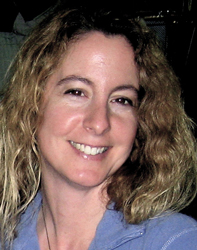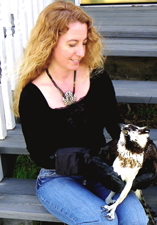 Hundreds of Berliners moved passed me, a tourist, in cars, on foot, by bike — moving along as if there was nothing strange about a hollowed out, wrecked stone building towering in the midst of more modern structures. It was a church 1000 years old and still standing after storms and bombings; the German people left the wreckage as a reminder of war’s horrors and how amazing it was to survive.
Hundreds of Berliners moved passed me, a tourist, in cars, on foot, by bike — moving along as if there was nothing strange about a hollowed out, wrecked stone building towering in the midst of more modern structures. It was a church 1000 years old and still standing after storms and bombings; the German people left the wreckage as a reminder of war’s horrors and how amazing it was to survive.
My Berliner-born Aunt lead the way and spoke of history and struggle, shared family stories and bits of trivia; she twittered beside me as my feet brushed over cobbled side streets. I didn’t hear her at one point, though, when I saw a cannon, the iron silent and cold now, a killing machine now a work of art. Astride the formidable reminder of human hatred was a starling. Her plumage was still speckled from winter, and she raised her head to the sky and sang strains I’d come to love. I grabbed my video camera to catch her there, zooming in as she delivered what seemed to be a history of her own.
I used to wake every morning to starlings singing at my bedroom window in Vermont. As the sun striped its way across the wooden floor, so did the warbles and clicks; the magical flute of starlings meandered through the open window to my ears. There was such joy and lusty life in the notes, and I often couldn’t help but creep quietly to the glass to see several birds on the roof, scrabbling to stay in place on the slippery tin, but with a most positive outlook.
“Nasty birds!” My Aunt’s lilting voice broke my reminiscing. “They are like rats. They are everywhere and make a mess of everything!” We kept walking, leaving the ravages of the church behind us. There was another part of this city my relative was aching to share. “It’s the great reconstruction,” she breathed deeply. There was construction among rubble everywhere I looked, skeletons of buildings that would soon be fleshed in, towering prongs of steel puncturing the sky. The noise was deafening from jackhammers and large machinery, voices yelling and giving directions in guttural German. “Berlin is being truly reborn after all these years.” My Aunt wiped a tear from the corner of her eye.
I could remember crying too when the Starlings disappeared from my window. I didn’t know where they’d gone, but heard the cracks of a gun from a neighbor’s house lately, and suspected he didn’t share my appreciation of their morning symphonies and nesting habits that brought them to any hole in the eaves because they knew a safe, dry place when they found it. I’d seen my neighbor remove the nests with angry defiance, but the birds would simply reconstruct and raise more of their kind.
Berlin was full of people who were not content to have their homes torn down either, and they thrived despite the challenges. My mother grew up here amidst bombs and wailing air raid sirens, running to school and falling to the ground as she had been trained, hiding under her school desk as did the classmates and teachers when the warning sirens sounded. When the bombing became too intense and American and Russian troops were arriving en masse, women and children were evacuated. My mother went to a small village in what would later become East Germany.
Maybe that’s the kind of retreat my dear starlings tried. I can only hope. I don’t know about other places in the country, but here in Vermont there is much teeth gnashing and wringing of hands over “non native” species. I was surprised to learn, that day in Berlin, that starlings were actually “European starlings” that had been transplanted to the United States in a small flock. When I returned to Vermont from my mother’s native land of Germany, I did some research on my beloved birds and found websites dedicated to these “parasites”— these “vermin”. The websites talked about poisons to eradicate them while outlining the damage they do and diseases they can spread. Most authors spoke of how this non-native species succeeds to an unreasonable degree and drives out other, native, “desirable” birds.
Starlings have migrated to some parts of the world and been carried by our own hands to others. Wherever they go, they thrive. They build starling communities and take advantage of resources that are at hand. Amazing.
After the war, my mother met a handsome American soldier and migrated with him to another country far from hers. She knew little English, left family behind, and entered a strange world. Still, she managed to make it her home. “I can’t imagine Germany as home any more,” she told me in the days before she passed away. She wasn’t native to the area, but found a way to nest here and raise two daughters until she felt part of the greater whole. It didn’t matter where she came from, because the Earth is home to everyone, and the only constant is change.
Not long ago, a group of swans settled on Lake Champlain in Burlington, Vermont. When it became clear that they intended to stay and were not passing through, the entire group was euthanized. As I walked through Berlin with my Aunt that day and looked at the European starling still chirruping on the great iron cannon, I felt lucky that there was not a “special” species to decide we were not native—or a life form on some distant planet who interfered with mammals thriving in changing conditions that dinosaurs were unable to tolerate. Indeed, if we are to worry about any non-native species, we should focus more on ourselves. Our own migration led us from Africa to every corner of the world. In our wake, other humanoid species disappeared, landscape was changed, and other species were hunted or driven out on many levels. We raise our heads to the sky and sing of our success and our history while we continue to migrate and use resources so we might thrive.
I didn’t hear my Aunt’s voice at all anymore. There was nothing but the winsome sounds of the Starling as I realized people hate them because they are so much like us. I stood there entranced as I looked in the mirror.
Tanya Sousa Bio:
 Creating and connecting people with the idea that all living things deserve respect and kindness are the two most important threads running through author Tanya Sousa’s life. “I love Einstein’s quote, …if you judge a fish by how well it climbs a tree, it will live its whole life believing it is stupid, ‘ she said, ‘because that quote not only speaks to different forms of human intelligence, but different forms of intelligence overall. All living things are amazing — just differently gifted.’
Creating and connecting people with the idea that all living things deserve respect and kindness are the two most important threads running through author Tanya Sousa’s life. “I love Einstein’s quote, …if you judge a fish by how well it climbs a tree, it will live its whole life believing it is stupid, ‘ she said, ‘because that quote not only speaks to different forms of human intelligence, but different forms of intelligence overall. All living things are amazing — just differently gifted.’
Tanya has written children’s picture books (find her work at www.RadiantHen.com), magazine articles, and has also published a number of creative non-fiction pieces and essays. Contact her at naturese@together.net.
Back to Stories


August 14th, 2013 @ 11:18 pm
Thank you, Tanya, this is all so true. As someone who adores starlings too, I know that it is only when you take the time to observe other species that you realise how special they are. But we so often don’t want to know that, because we it would have to change the way we respond to the world around us.
Very best wishes.
August 15th, 2013 @ 2:43 am
We certainly do have to change the way we respond, don’t we Paul? I’m encouraged though. I do see it happening — although perhaps not as rapidly as I’d like to see it take place. 🙂 Best wishes to you too.